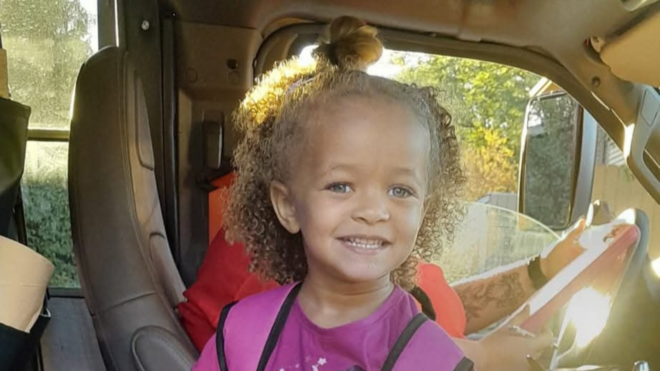Imagining a dog, or a puppy, no less, in a prison cell is pretty upsetting. After all, no dog should be behind bars… right?
Well, normally, we'd say yes. But one life-changing program has actually created a nurturing environment for dogs and humans, right inside a prison.
In San Diego, the Richard J. Donovan Correctional Facility has teamed up with Tender Loving Canines Assistance Dogs to create a program that's providing growth, care, and healing for dogs, prisoners, and people with disabilities all at once. Pretty amazing, right?
The program is called Prisoners Overcoming Obstacles & Creating Hope — that's POOCH for short. In the POOCH program, inmates are paired with puppies and young dogs, and, with the help of a professional trainer, train their dogs to become service dogs.
It's all part of new and therapeutic methods of dealing with people who have run afoul of the law, to rehabilitate rather than simply punish, like the island village for inmates in Norway.
After training, the dogs go on to provide physical and emotional support to people with disabilities, including people with autism and wounded veterans.
The dogs get care and training, the prisoners get education and a furry, therapeutic companion, and eventually, someone in the area gets a service dog. Everybody wins!
Read on to learn more about this wonderful program.
[H/T: The Dodo, San Diego Tribune]
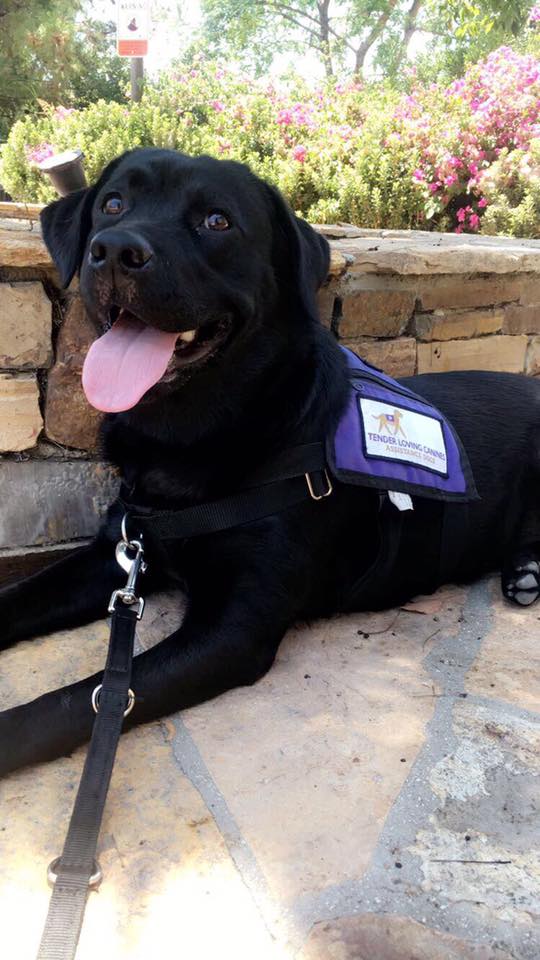
Tender Loving Canines Assistance Dogs (TLCAD) provides service dogs for people with all kinds of specific needs.
Their dogs provide physical and emotional support for children with autism, disabled veterans, and people from all different backgrounds.
Dogs like Belle here help them out with everyday tasks, and soothe them when they become overwhelmed.
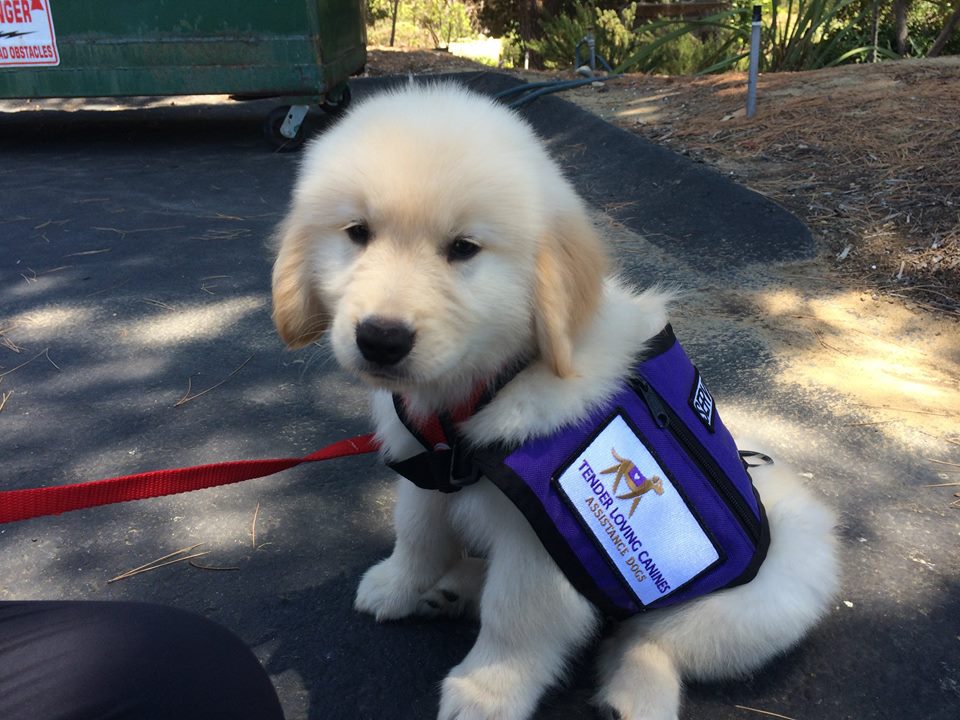
Of course, any service dog needs extensive training before they can help a human on this level. Puppies like Stewart start their training early, so they have a lifetime of experience.
But what you might not guess is where these dogs are trained.
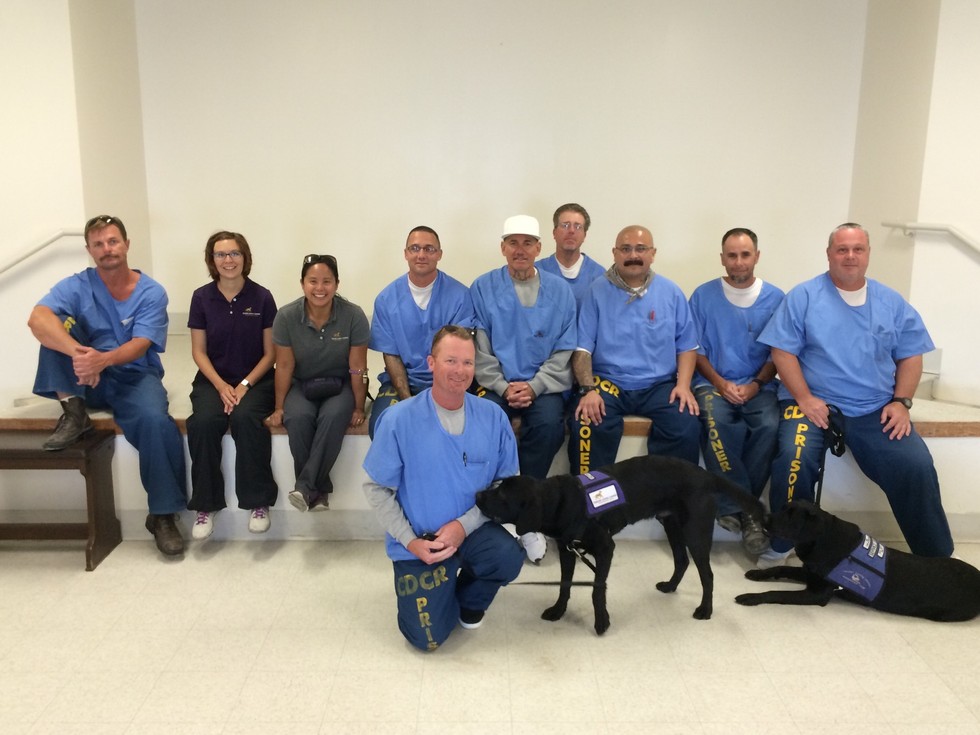
Many of TLCAD's dogs are trained by inmates in the Richard J. Donovan Correctional Facility in San Diego.
The inmates, who are of course carefully selected for the program, are paired up with a specific dog, and, with the help of TLCAD's professional trainers, train the dogs to become service dogs.
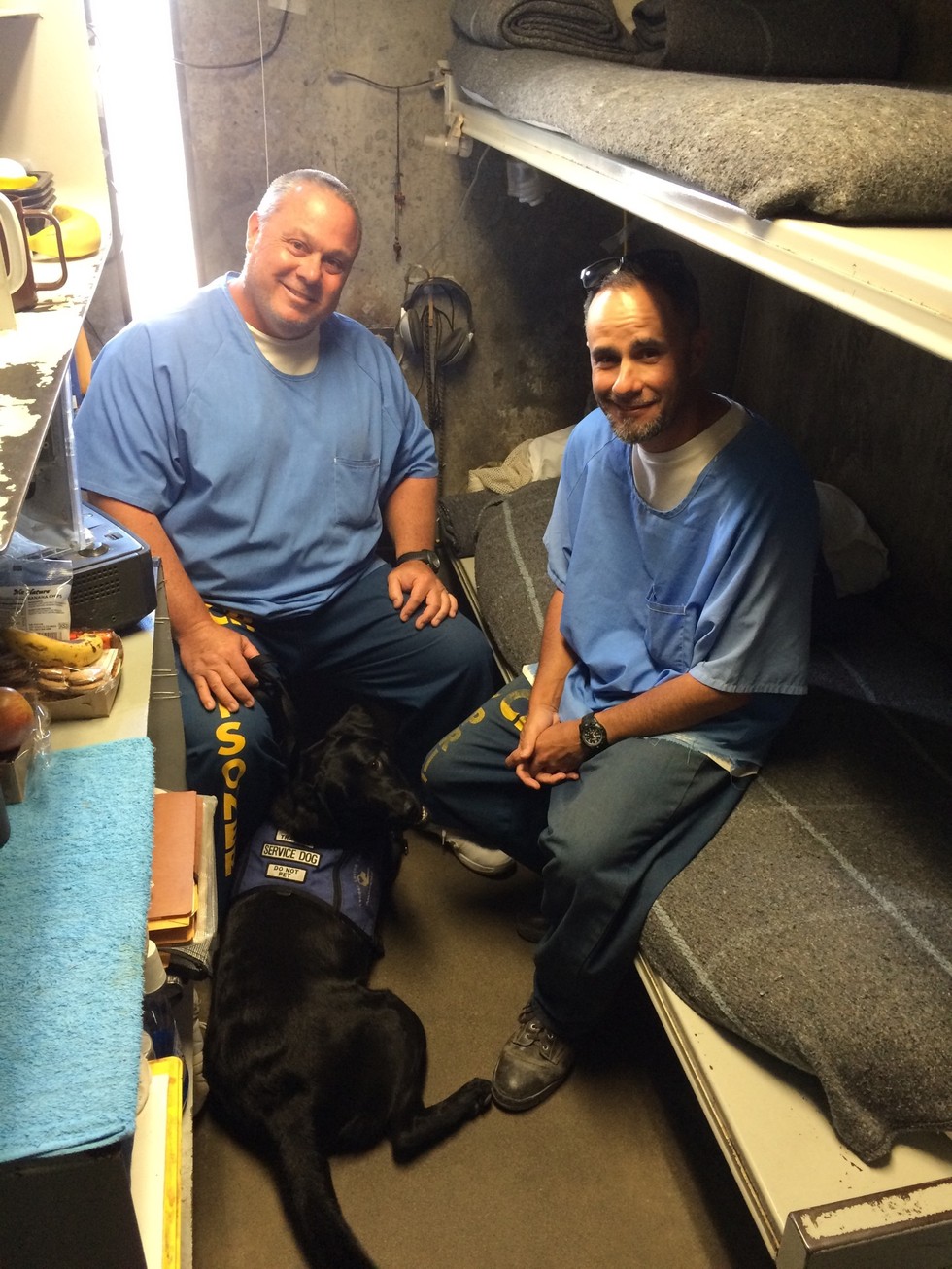
And that's not all. The dogs actually live in the prison with the inmates. That might sound like a punishment for the dogs, but it's not at all.
They get care and companionship, as well as a trainer who will be with them all day every day. Because of this extensive togetherness, dogs trained in prisons are typically highly and exceptionally well-trained.
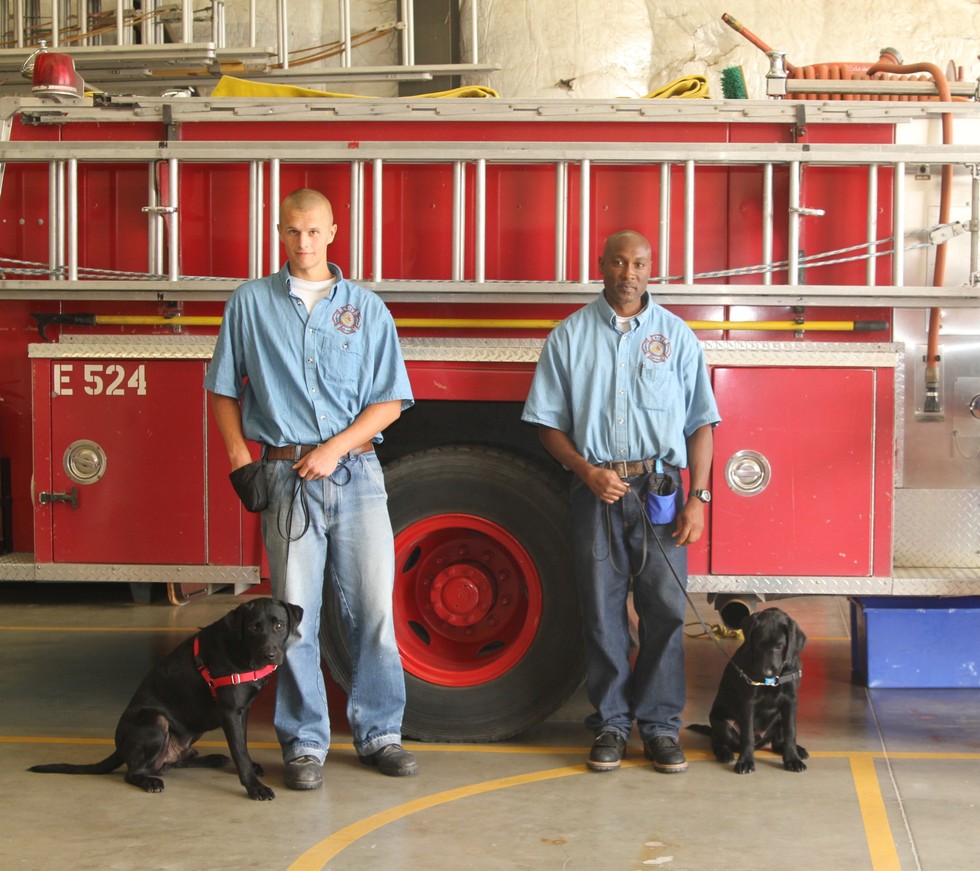
And the dogs aren't the only ones getting something out of this.
Studies have shown that inmates who work with dogs have much lower rates of repeat offense, and dog-training programs like these provide the prisoners with focus and compassion, and have been shown to reduce incidents of violence.
The inmates can also take their dog-training skills with them when they leave prison.
The dogs seen here work with the prison's fire department.
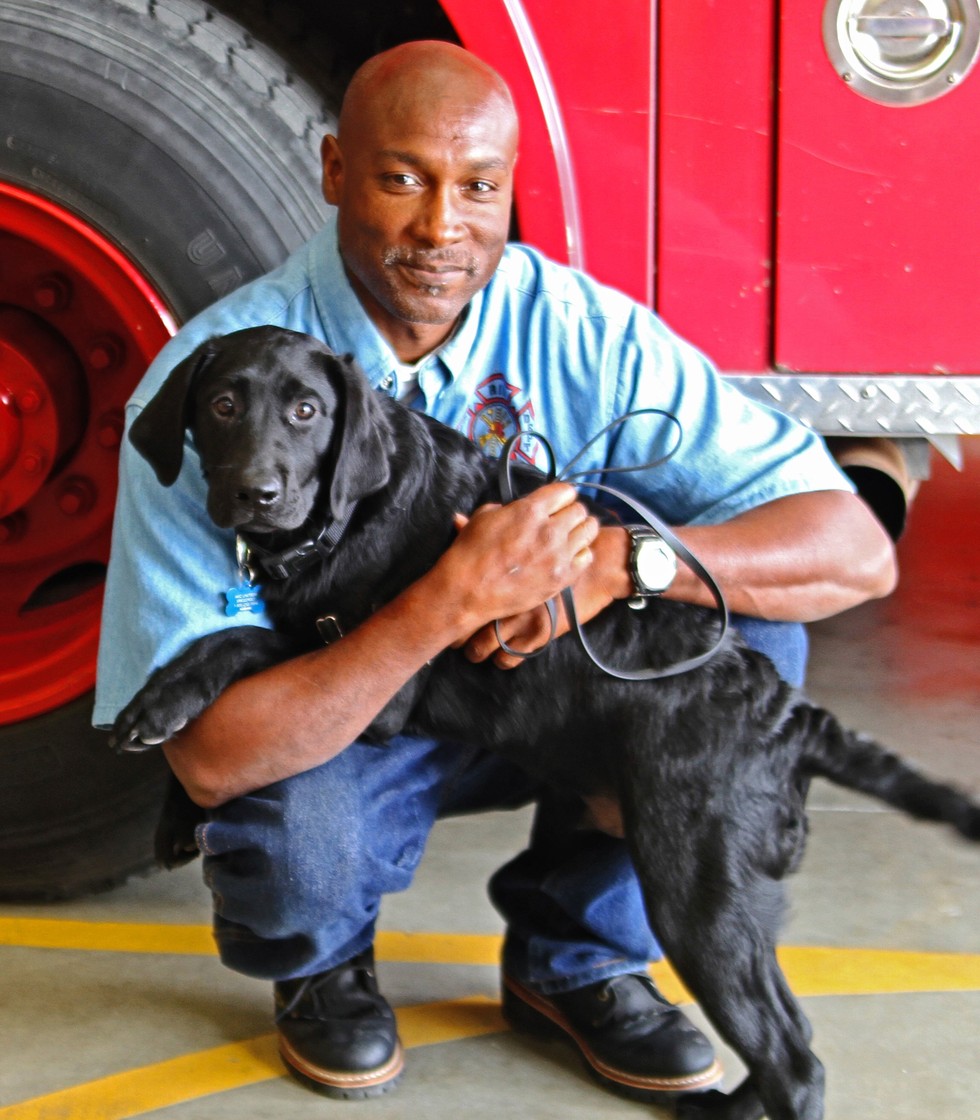
"You have something that distracts you from the negative environment," one inmate says. "It's a positive reinforcement for the person and the dog."
"I truly appreciate the opportunity to be able to participate in such a worthy program," another says. "Not only is it a program beneficial to someone with disabilities, it's helping me grow as a person, as well."
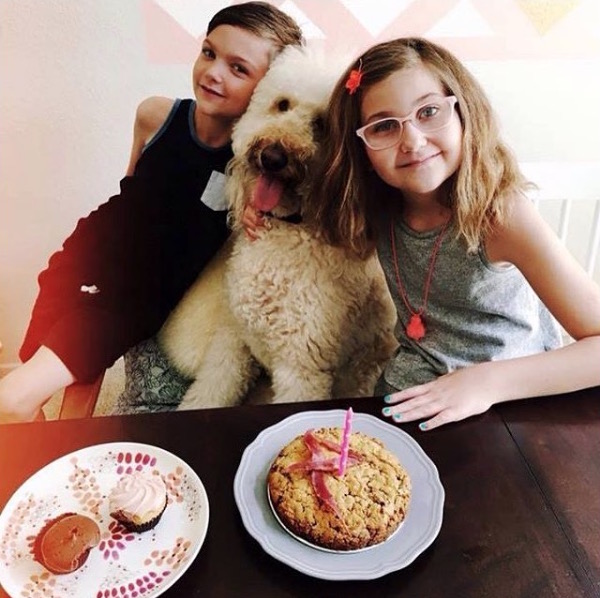
And the families who wind up with these dogs also benefit, getting to welcome a highly trained, compassionate pooch into their lives.
You can learn more about TLCAD and the POOCH program on their website, as well as on Facebook and Instagram, and consider donating to make sure these programs keep going.
And be sure to SHARE this great program with anyone who loves seeing humans and dogs alike getting the help they need.



